Playing Starfield made me appreciate Cyberpunk 2077 so much more
After my sojourn in space, returning to Night City feels like coming home
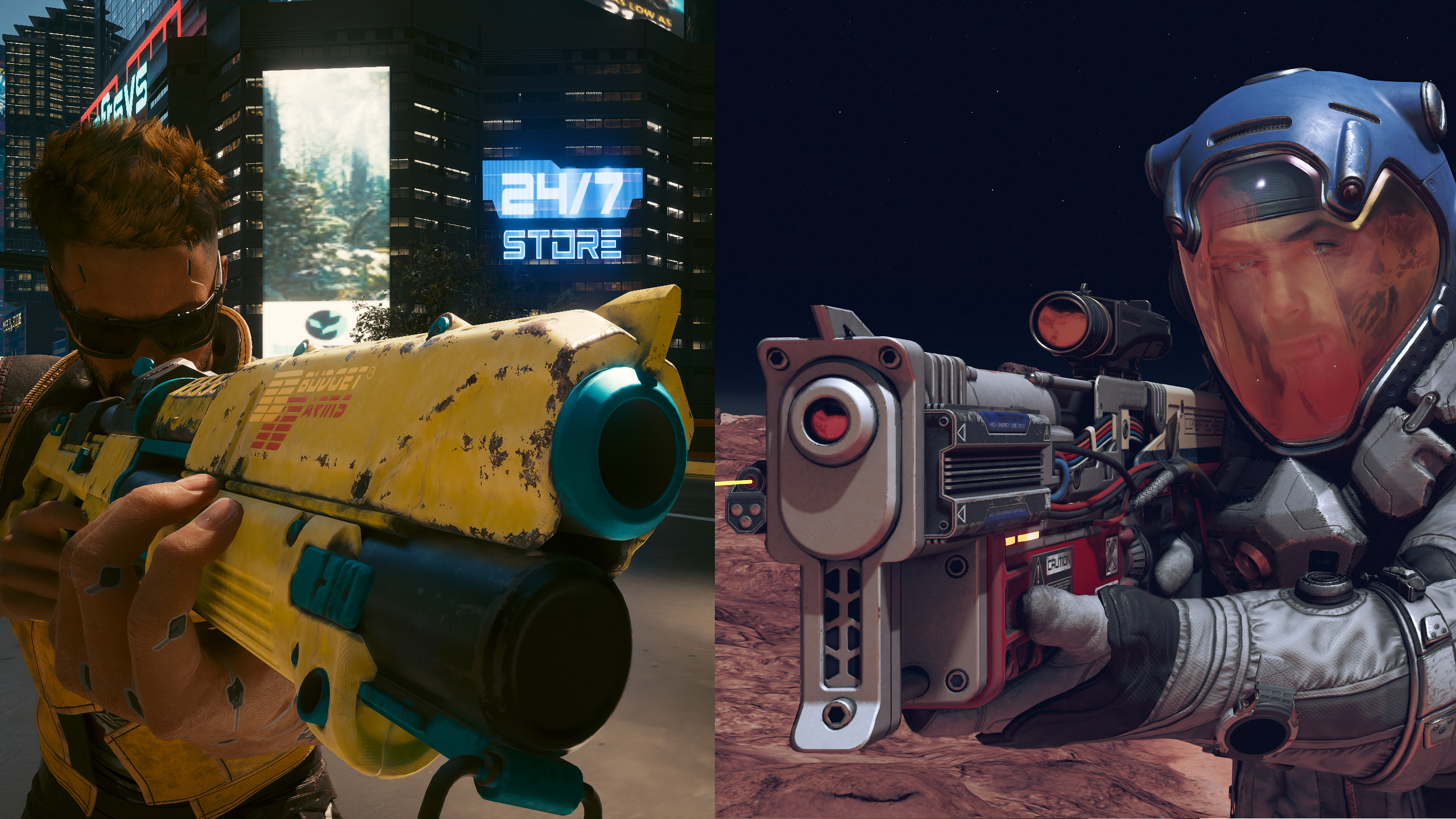
As an absolute RPG hound, I've been having a splendid time lately. Thanks to Baldur's Gate 3 and Cyberpunk 2077: Phantom Liberty, with its fantastic 2.0 update, I've struggled to leave my PC before 3 am on more than a few nights these past two months. I should be exhausted by now, but as I get up to no good in Night City, I couldn't be happier. Playing Starfield first helped.
I want to love every game I play, but I just haven't been able to find a lot of joy in Bethesda's huge sandbox, even as a lover of space, science fiction and the studio's previous games. There have been bright spots, or I wouldn't have played for more than 60 hours, but from its intro to its over-reliance on fast travel, I just keep being disappointed. But what it has done, and I thank it for this, is make me appreciate Cyberpunk 2077 so much more.
There are some standout quests in Starfield that I've genuinely had a good time with, like the Ryujin Industries faction quest chain, and my brief career as a pirate in the Crimson Fleet. Each one had something holding it back from being able to contend with my favourite RPG quests, though. Something nagging me in the back of my mind. "I'm digging this," I'd think, "but am I just desperate to find something to justify how much time I've poured into this game?"
Making chooms
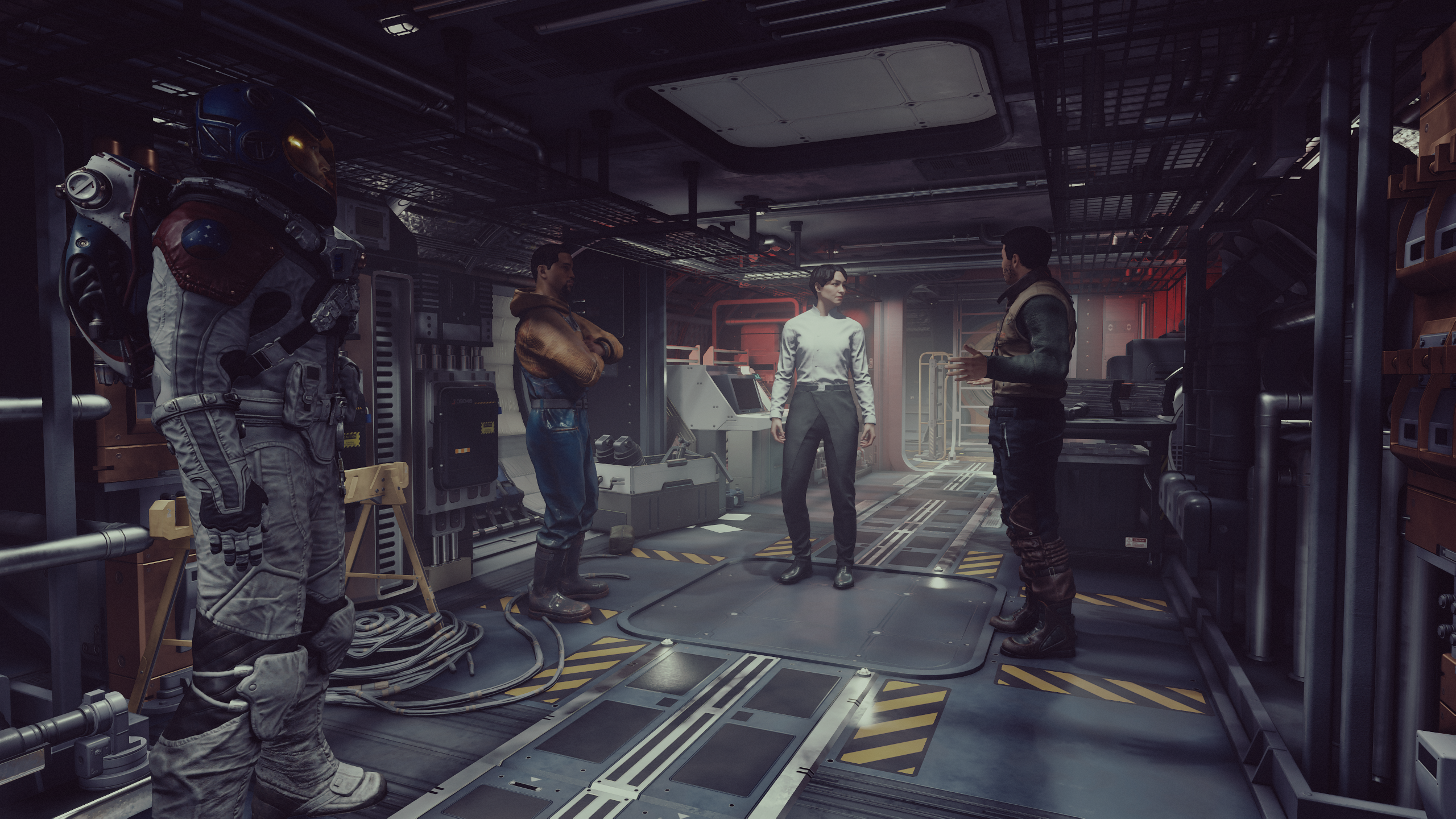
Bethesda's writing is partially to blame. It gets the job done with a workmanlike attempt to provide context to quests, while giving you characters to hate and others to hate a bit less. But it's as flavourful as plain porridge. And this is coming from a Scot—we bloody love the stuff. No lines of dialogue stand out, no intimate moments between characters bubble to the surface. I'm never being encouraged to care about anything that's going on. I'm just talking to mannequins with only the glimmer of sentience and barely any agency.
Firing up Cyberpunk 2077 again, the jump in writing quality is as striking as a metal cybernetic prosthetic punching you in the face. Cyberpunk's style is not for everyone: it's desperately trying to be edgy, it relies on loads of cringey slang, and a lot of the cast are absolute douchebags, including your digital ghost pal Johnny Silverhand, who is a complete tosser. But it totally commits. Every line feels tailor-made for this world and the character spouting it.
The other night, I sat on a bench and just argued with Johnny. We ripped into each other. Said things we probably both regretted. And from that came a moment of understanding. The whole time my verbal sparring partner was animated and passionate, lighting up a cigarette, moving around the scene, shouting with his body as well as his voice. The equivalent in Starfield is a mostly static character staring at you with dead eyes as they quietly complain that they don't like it when you murder people. You say you're sorry or you're not sorry. End scene.

After playing a female V the first time around, who became romantically entangled with Judy, this time I'm playing a straight male V and embarking on a relationship with Panam. We've had a lot of chats in the car, initially spitting insults at each other, but now we trust each other with our lives. During a sandstorm, we chilled out on a sofa in a derelict motel. I told her to take her boots off and she joked about her stinky feet—it had been a long day in the desert. We fell asleep next to each other, following my failed attempt to put the moves on her. Afterwards, as she was about to ride off on her bike, she pulled me in for a kiss, and then I watched her speed away into the sunrise, with Johnny waxing poetic. All in all, a pretty good date.
Keep up to date with the most important stories and the best deals, as picked by the PC Gamer team.
In Starfield, I just kept getting notifications that my cowboy buddy, Sam Coe, needed to talk to me, where he'd briefly moan about his ex-wife and I'd tell him he's a good dude. Then, while glitching out and standing on top of a bar, he broached the subject of becoming more than buddies. No sparks, no tension, no friction—just a cowboy with the voice of Adam Jensen who liked that I said the occasional nice thing to him and suddenly wanted to be my space husband.
But it's not just the writing and characters that make for such a stark contrast. It's everything. While Starfield keeps sending me into the same buildings to fight the same pirates on yet another barren moon, Cyberpunk is sending me to new places all the time, from slums to ghost towns to aggressively huge skyscrapers and neon-bright bars. Not all entirely bespoke, sure, and yes I've spent a lot of time shooting people in dirty alleys, but also in so many realistically varied and memorable places.
Worlds apart
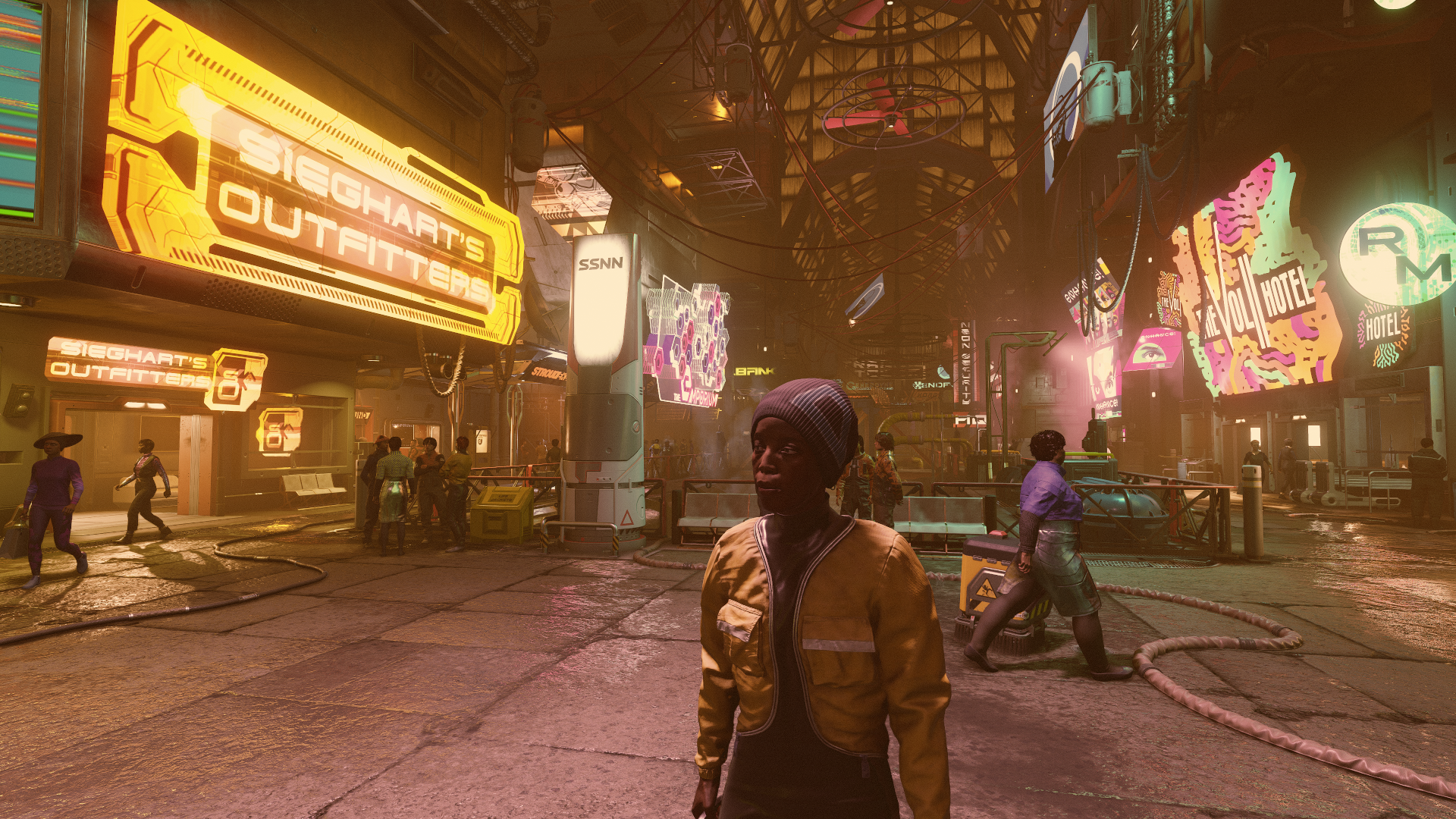
It's notable that Starfield only comes close to this in Neon, a settlement that's basically a miniature Night City. But even here, there's no sense that it's a lived-in space, with every inch of the slums and office buildings being designed just to blast through as you embark on another overly-familiar quest.
The argument that Starfield's larger scale justifies its constant repetition just doesn't make sense to me. Cyberpunk is absolutely huge as well. And it feels large in a more meaningful way. It's not segmented by countless loading screens, and every space flows into the next, making each trip across it feel like a cohesive journey.
Every district, every street, tells you part of the story of Night City. The environment is your constant narrator, and at first walking through it might give you sensory overload, but it's worth the price of admission. It's a sprawling metropolis that I've properly gotten to know, unlike the substantially blander settlements and planets of Starfield. Even when Cyberpunk does repeat itself, its locations feel worth repeating. The lighting, art, level design—the quality means that I really don't mind if a room or a building crops up a few times.
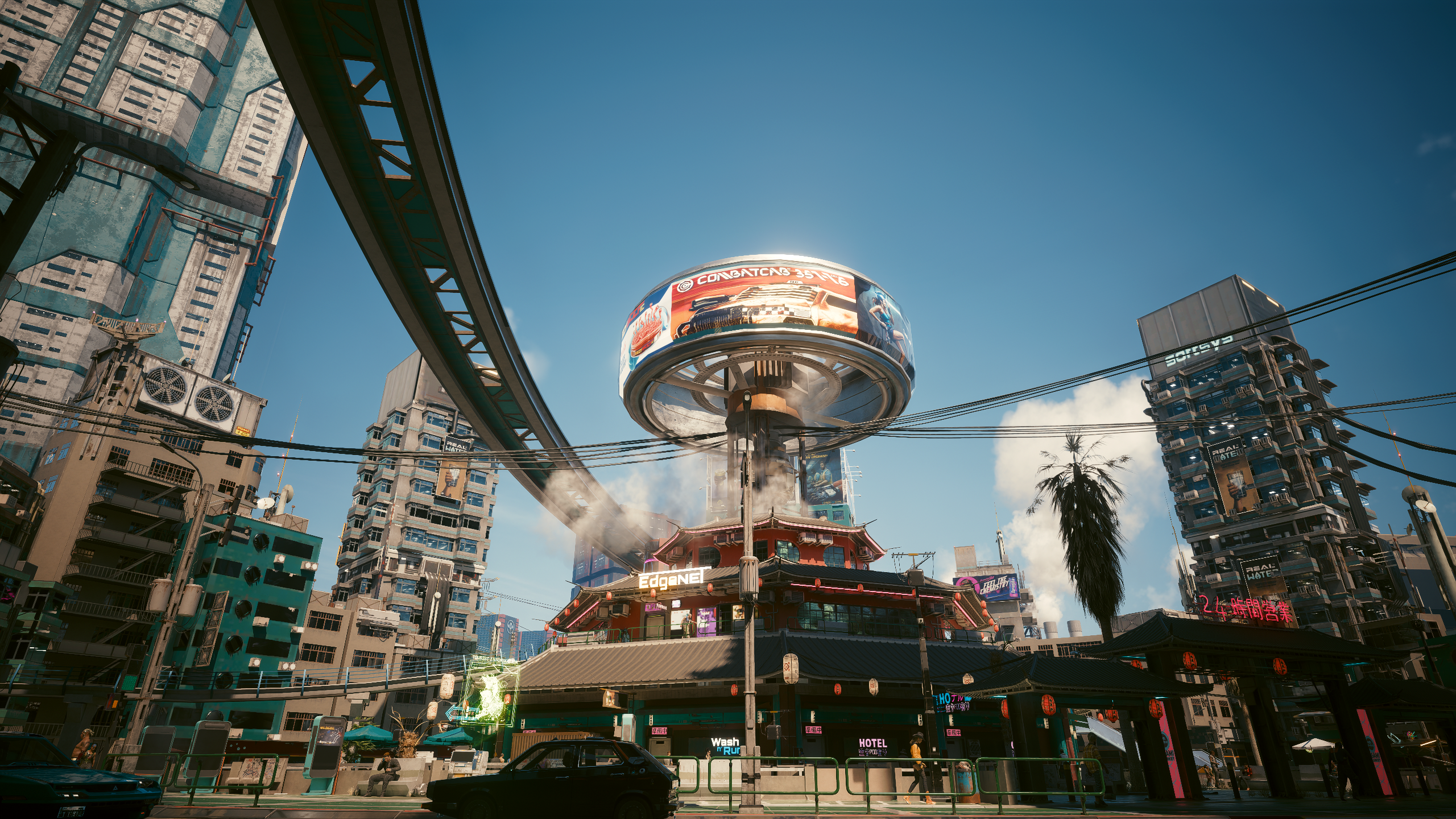
Let's go back to that Ryujin quest chain I mentioned earlier. This is one of my favourite bits of Starfield, which unsurprisingly mostly takes place in Neon. It sees you go for a job interview with a corporation, start out grabbing coffee for your bosses, and then makes you a super spy operative. It's a fun premise that lets you take a break from hopping around boring worlds, instead making you infiltrate office buildings, hunt down moles, steal prototypes and even indulge in a bit of mind control. It's as Deus Ex as a quest chain can be, at least while still playing Starfield.
Getting up to some sneaky shenanigans in Cyberpunk the other day, however, has sort of ruined my memories of my stint in Ryujin. The stealthy systems that CD Projekt Red has developed aren't quite at the impressive level of Deus Ex, but they come so much closer than Bethesda's. I was given so many more ways to infiltrate a building, and then when I was inside just as many ways to deal with the guards. I used my cybernetics to get up high to scout guard positions, and then my netrunning skills to turn off cameras, create distractions, blow up turrets, blind guards or overheat their implants. In Starfield I mostly just had to crouch a lot and find the occasional terminal.
I'll never forget the moment that I fell down an elevator shaft and landed right in front of a guard, only for them to not react at all because I was crouching. The AI just isn't up to dealing with stealthy characters. It's not like Cyberpunk's enemies are geniuses, but at least they're making a bit of an effort.
Violent response
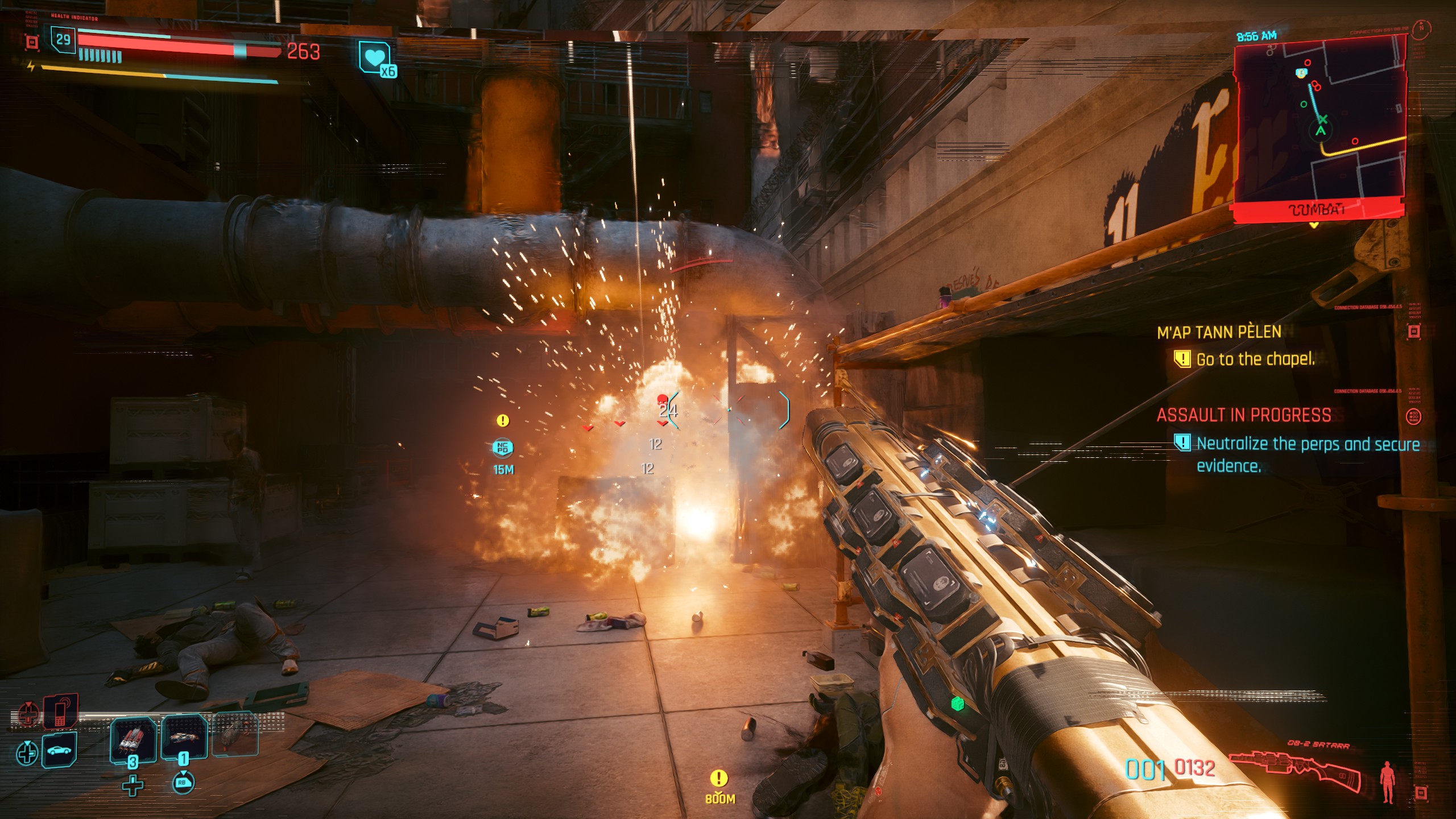
Cyberpunk is also simply a much better FPS. Credit to Bethesda, Starfield has the tightest combat the studio has ever designed, but when you take boost packs and occasional zero-G shenanigans out of the equation, it's all very perfunctory. Cyberpunk benefits a lot from its fights having more personality. The music starts blasting in your ears, gang members start screaming, everything starts exploding, including bodies—it's a spectacle, and it makes you feel like a badass. But it's also mechanically superior. The feedback and heft of the guns, the range of skills and their impact on fights, the way cybernetics let you pull off superhuman feats, the brutal aggression of your foes—it all amounts to encounters that are so much more satisfying to survive.
Whenever I see criticisms levelled against Starfield, I see the response "Maybe it's just not your kind of game." But while Starfield's scale (on the surface) is much larger than Cyberpunk's, and it includes things like base building and space combat, ultimately these are still both first-person RPGs with crafting, exploration, warring factions, loads of dialogue and the occasional immersive sim elements. Cyberpunk is not a sandbox in the same way that Starfield is, but it still adheres to the sandbox philosophy of playing your way and making your own fun. There are endless similarities, and the most glaring differences are ones of quality.
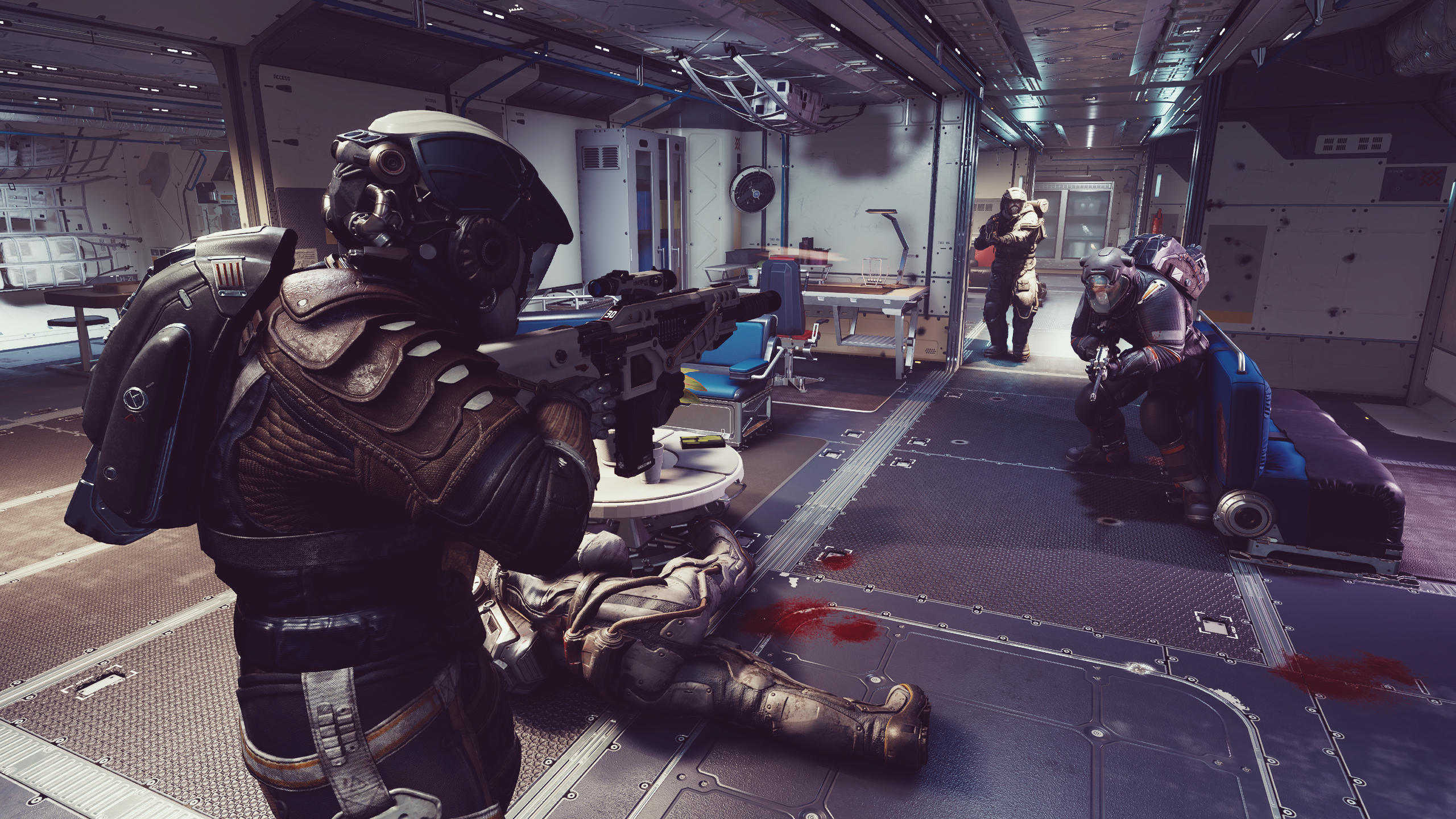
Cyberpunk has had the last three years to develop into an excellent RPG. But a lot of the things that I'm loving about it now, things that I'm appreciating so much more in my post-Starfield playthrough, existed back at launch.
The confident aesthetic might be aggressively garish, but I love it. The writing blesses the world with a real sense of place, and deftly hops between emotional resonance and cocky comedy. The quest design, though often quite simple, is supremely effective, and elevated by compelling set ups, car chases and high-octane brawls. These points in Cyberpunk's favour have always been around but were just undermined by bugs and janky systems and underdeveloped character progression—issues that are no longer as significant, or gone entirely. But hey, maybe in a few years I'll give Starfield another go and finally find something to love about it.
I'd be overjoyed to discover a game that I can have as much fun with as I do Cyberpunk. In the meantime, I'm a Night City gonk who's glad he escaped Constellation.

Fraser is the UK online editor and has actually met The Internet in person. With over a decade of experience, he's been around the block a few times, serving as a freelancer, news editor and prolific reviewer. Strategy games have been a 30-year-long obsession, from tiny RTSs to sprawling political sims, and he never turns down the chance to rave about Total War or Crusader Kings. He's also been known to set up shop in the latest MMO and likes to wind down with an endlessly deep, systemic RPG. These days, when he's not editing, he can usually be found writing features that are 1,000 words too long or talking about his dog.

